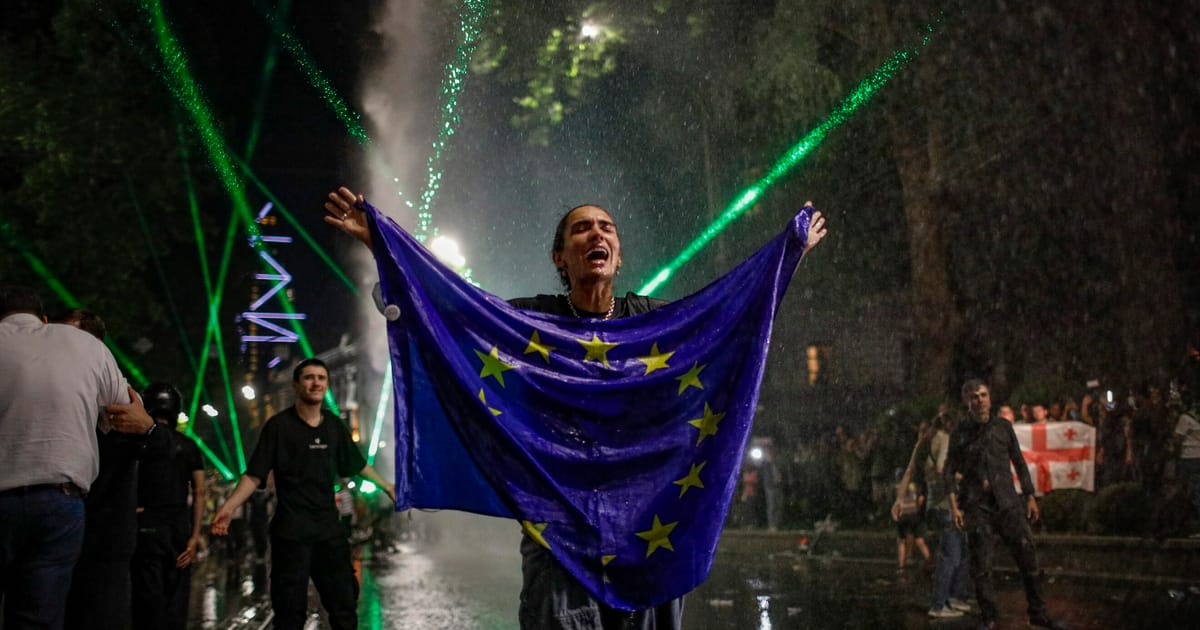Intimidation is becoming a feature of daily life, even before a controversial new Kremlin-style law takes effect.
Gia Japaridze, a 50-year-old lecturer and former diplomat, was ambushed near his home in Tbilisi on the evening of May 8 by several people wielding sticks and what he believed was a baseball bat.
“I was born in the Soviet Union. I wasn’t afraid of the Communists. They can’t scare me either. I don’t have any doubts — I know that the government was behind this,” said Japaridze, who needed stitches, suffered a concussion and received deep livid bruises across his back.
His assailants made clear they were targeting him because of his public opposition to a Russian-style law on “foreign agents” that Georgia’s parliament approved on Tuesday.
Critics of the new law fear the government will use it to crack down on media, the opposition and civil society in this Caucasian country of 3.7 million people. Tens of thousands of protesters have packed the streets, incensed that their government seems determined to scupper the country’s prospects of joining the EU.
Brussels had feared the new law would precede a brutal crackdown on dissent — but violence and intimidation against the opposition is already spiking, even before the law takes effect.



This is the best summary I could come up with:
A few days later, when Zuriashvili arrived at her office, she was greeted by dozens of flyers bearing her face plastered across the walls outside, accusing her of being “an agent sold for money” and calling the investigative outlet an “anti-Georgian agency.”
Playing to conservative supporters, and brushing off criticism from the EU and U.S., the party says the new law is needed to stop foreign influence from undermining traditional values.
“If we bow to these Soviet-style foreign directives, in the future they’ll just as successfully demand us to reject laws on family values and protection of minors, to adopt same sex marriage, to legalize drugs,” Prime Minister Irakli Kobakhidze said on Monday.
Meanwhile, Parliamentary Speaker Shalva Papuashvili has threatened to crack down on the demonstrators — announcing plans to create a database of those he says are “involved in violence, illegal activities, intimidation and blackmail or approve of such behavior.”
On Tuesday, as the Georgian parliament voted 84-30 in favor of the bill, thousands gathered outside the legislature in central Tbilisi to drown out proceedings with a chorus of whistles, vuvuzelas and banging pots and pans.
At the edge of the rally, several men in black, wearing masks, accosted journalists and bystanders, taking pictures of those present in an apparent bid to intimidate them.
The original article contains 981 words, the summary contains 215 words. Saved 78%. I’m a bot and I’m open source!